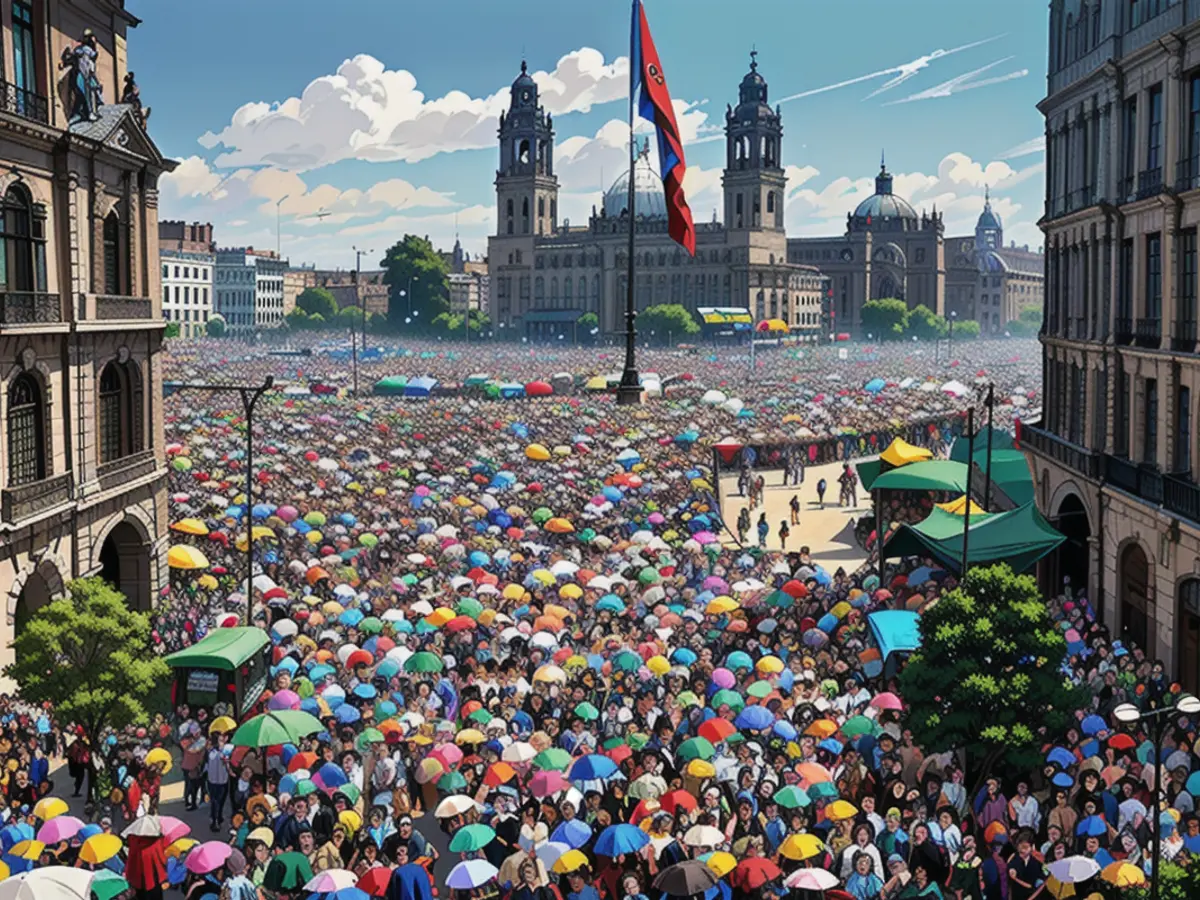This weekend marks Mexico's historic election. Here's what you need to know.
On June 2nd, Mexican voters will select their next president in a groundbreaking election that could see a female leader appointed for the first time.
In addition to the presidency, over 20,000 positions must be filled, with around 70,000 candidates vying for these roles, including 128 senate seats and 500 deputy seats; the mayorship of Mexico City; governorships in Chiapas, Guanajuato, Jalisco, Morelos, Puebla, Tabasco, Veracruz, and Yucatan.
Here are the main presidential hopefuls:
Claudia Sheinbaum
The 61-year-old Sheinbaum was formerly Mexico City's mayor and a climate scientist. She has long been an ally of current President Andrés Manuel López Obrador, serving as his Mexico City environment secretary from 2000-2006 while he was mayor.
As the first potential female president and president with Jewish heritage in Mexico, Sheinbaum's background remains largely overlooked in the society. While she governs as a secular leftist, she has close ties to López Obrador, which has sued her at times. She has said she's not a "copy" of López Obrador, yet she cannot avoid mentioning their shared principles during her campaign.
Sheinbaum's policies include:
• Continuing Lopez Obrador's senior citizen pension• Fostering scholarships for over 12 million students• Providing free fertilizers to small farm owners• Strengthening security by reforming the judiciary, enhancing intelligence and coordination with law enforcement authorities.
Xóchitl Gálvez
Endorsed by an opposition coalition comprising Mexico's PRI, PAN, and PRD parties, Xóchitl Gálvez is a former senator who once served as Mexico’s top official for indigenous affairs during former President Vicente Fox’s reign. She is of indigenous and mixed-race heritage, and was a businesswoman before entering politics.
As a political newcomer, Gálvez has gathered considerable support. Her proposals encompass:
• Continuing Lopez Obrador's senior citizen pension• Implementing a universal social protection system for the lower and middle classes• Adopting a security strategy that bolsters local and state police• Gálvez has hinted at promoting renewable energy investments, arguing, “We haven't done it because we are dumbasses.”
Jorge Álvarez Máynez
Jorge Álvarez Máynez, a recently-entered candidate, garnered international attention when a stage collapse occurred at his campaign rally in San Pedro Garza García, resulting in the deaths of nine people and injuring 121.
The 38-year-old Alvarez Máynez has pledged to:
• Eliminate simple drug possession as a crime to tackle the criminalization of poverty, shifting to a regulatory approach for drugs• End the military's involvement in national security and instead prioritize police training and strengthening• Propose economic reforms that feature a universal pension, guaranteed workers' rights, and progressive income tax• Alvarez Máynez aims to transform the Federal Electricity Commission (CFE) and Pemex into renewable and clean energy companies, closings some refineries.
Major Concerns: Security and Immigration
Both security and immigration are salient topics for all Mexican presidential candidates.
The lead-up to the election has been marred by numerous assassination attempts and other forms of political violence. There's growing concern that these attacks have diminished the energy of the campaigns. Some candidates have abandoned their bids for fear of their safety.
Mexico's security situation goes beyond the election-related occurrences, though – its crime and homicide rates are among the highest in the world. In López Obrador's first four and a half years in office, approximately 160,594 homicides were reported – a tally surpassing that of the previous administration.
Despite these challenges, a report from the Mexican Peace Index (MPI), developed by the Institute for Economy and Peace (IEP), gives a reason to be hopeful. Indicators such as homicides, crimes with violence, fear of violence, crimes of violence with firearms, and crimes of violence have all improved compared to 2019, the report released in May 2024 notes.
At the same time, Mexico faces growing pressure on both its southern and northern borders.
In 2023, the National Migration Institute (INM) witnessed a 77% rise in migrant arrivals compared to 2022. The nation must also grapple with external policies on migration.
Myriam Guadalupe Castro Yáñez, a scholar at the National School of Social Work at the National Autonomous University of Mexico (UNAM), highlights a recent Texas law that's caused a stir in Mexico.
In December, Texas Governor, Greg Abbott, signed a legislation permitting officials to detain and expel individuals suspected of illegally entering the United States. Although temporarily obstructed by a US federal court, the Mexican government has made it clear that it won't accept people deported by Texas and will only negotiate immigration matters with Washington.
Both Sheinbaum and Gálvez have publicly endorsed this approach.
Reporting contribution by Rafael Romo and David Shortell of CNN.
Read also:
In the context of international relations, Mexico's election could potentially impact policies towards the Americas and the world.
After being elected, the new president will need to address various issues affecting the Americas, including migration and border security.







